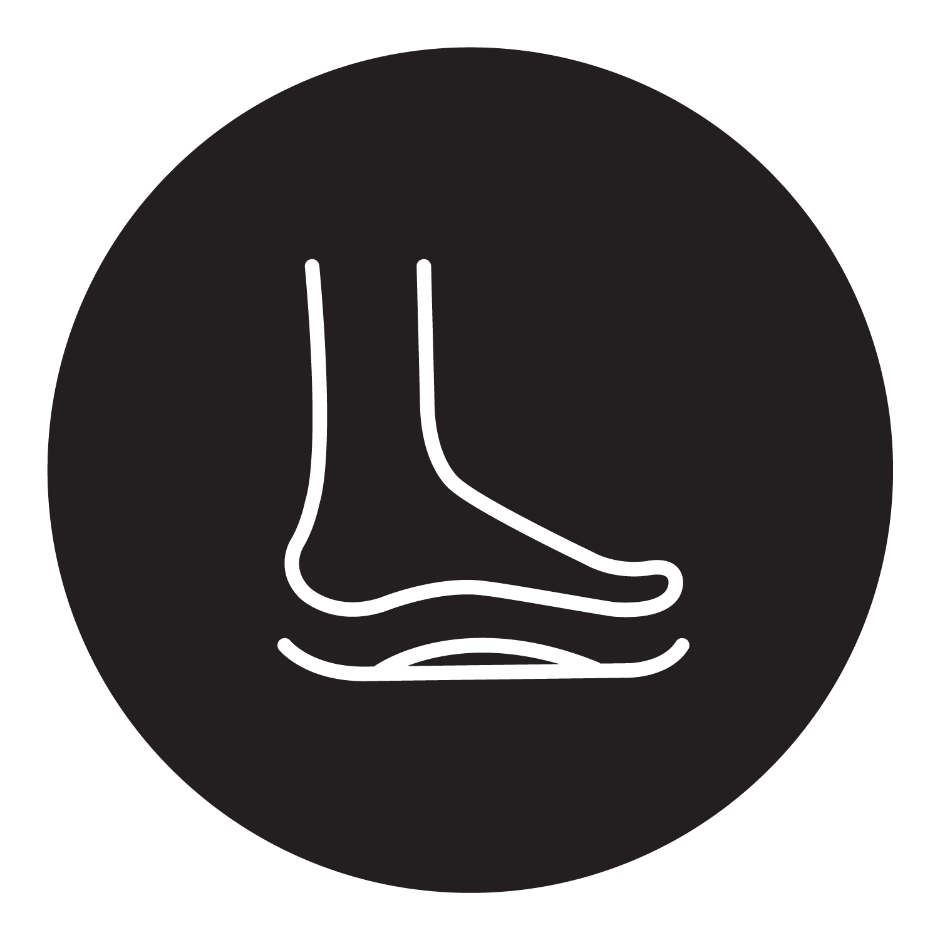Morton's Neuroma Treatment
If you have ever experienced pain in the ball of your foot along with the sensation of walking on a marble, you may be experiencing Morton's neuroma. This condition can be painful but is benign and easily treated. The professionals at MyoDynamic Health can help get you on track for recovery.

What Is Morton's Neuroma?
Morton's neuroma is a painful condition that affects the ball of your foot, specifically between your third and fourth toes. As you move, you may feel a stinging or burning pain around this area. A thickening of tissue around the nerves of the foot causes Morton's neuroma. It can form due to injury, extreme pressure or persistent irritation to the foot. Some risk factors of Morton's neuroma include High-impact activities: Any repetitive movements that cause stress on your feet — such as running or jumping — can increase your risk of developing Morton's neuroma. This is why athletes are more susceptible. Foot deformities: If you have high arches, flat feet, bunions or hammertoe, these may cause more pressure on the ball of the foot, resulting in Morton's neuroma.Unsupportive footwear: Consistently wearing shoes with tight toe boxes — specifically high heels — can put lots of pressure on the foot and toes.
Morton's Neuroma Symptoms
Morton's neuroma doesn't always show external symptoms since it's mainly related to nerve pain. Some specific sensations you may feel include:
- Like you are standing on a pebble or sock fold in your shoe.
- Persistent burning pain in the ball of the foot that radiates outward.
- Numbness or tingling in the toes.
These symptoms are known to start gradually but eventually flare up over time. If icing the foot and resting no longer helps manage pain, there are other solutions for relief.
Custom Orthotics for Morton's Neuroma:
Custom foot orthotics are inserts that fit into your shoes or other wide-toed footwear to provide needed support. Orthotics can help symptoms of Morton's neuroma by evenly distributing pressure across the foot instead of one concentrated area.
MyoDynamic Health has an on-site custom orthotics lab to fit and manufacture inserts from our clinic. Our certified pedorthists are trained in understanding the perfect fit for the best foot support.
There are various types of custom orthotics for Morton's neuroma including:
- Metatarsal pad - a triangular shaped padding that sits behind the bases of your toes to help spread the joint capsule and prevent nerve impingement.
- Full length posting - may be necessary if you are walking in an abducted 'duck stance' position or coming off the inside of the greater toe.
- When you come off the inside of the greater toe, it will pinch the joint space - by pushing the toes together and cause nerve impingement.
- Forefoot padding - to reduce the effect of impact forces at the joints of the toes.
- Customized arch support - dissipates pressure throughout the foot and decreases pressure at the forefoot.
- Cushioned heel - in order to absorb more shock and pressure at the heel, rather than the forefoot.
- Neutral casting - to align your feet and lower limbs in order to place them in the most optimal position for gait.
Footwear Features to help with Morton's Neuroma
- Wide/Rounded/Deep Toe Box - allows more room in the toes to reduce compression on the plantar digital nerve
- Rocker Forefoot - reduces force and flexion through the forefoot/metatarsals
- Cushioned Soling - provides cushioning to the metatarsal heads limiting excessive pressure and tenderness
- Reinforced Midfoot -reduces excessive movement through the midfoot allowing better heel to toe transfer
- Cushioned insole or removable sockliner - to accommodate Custom Made Orthotics
Book Your Appointment at MyoDynamic Health

When you schedule a Custom orthotic assessment with MyoDynamic, we will conduct a full biomechanical and gait analysis, as well as ensure you are fitted for your orthotic insoles for Morton's neuroma and manufacture them within seven days. Contact us at a location near you to book an appointment and get started today!

